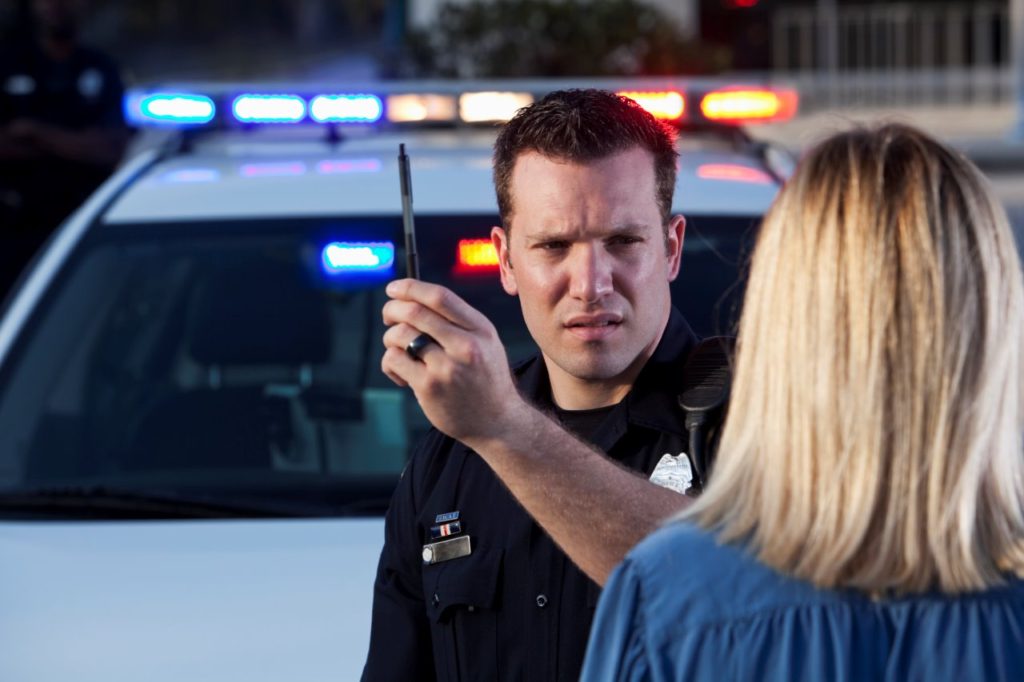Tens of thousands of divers in Illinois are arrested every year for driving under the influence and, sometimes, arrests occur at sobriety, or DUI, checkpoints where law enforcement will stop motorists looking for signs of impairment. It is important to understand your rights if you are arrested at an Illinois DUI checkpoint.
The law requires that an officer have probable cause to make a traffic stop, however, sobriety checkpoints are an exception to the search and seizure provisions of the U.S. Constitution because the dangers of drunk driving outweigh the degree of intrusion. Therefore, you may be stopped at a DUI checkpoint without probable cause in Illinois.
What Can I Expect at a Sobriety Checkpoint?
When a vehicle is stopped an officer will approach the driver and ask a few questions. A lot can be gleaned from a conversation – slurred speech, glassy eyes, or the smell of alcohol on the breath may lead to an officer to suspect that a driver may be impaired at which time he or she may ask the driver to perform field sobriety tests.
Of course, drivers stopped at sobriety checkpoints may refuse to speak with law enforcement officers, opting to keep their windows rolled up, but if an officer suspects that a driver is impaired for any number of other reasons, the driver may still be asked to perform field sobriety tests.
Do I have to take a Field Sobriety Test?
Common field sobriety tests include walk and turn tests, one leg stand tests, horizontal gaze nystagmus (HGN) or other tests to determine if a driver is impaired. A driver may be asked to undergo a breathalyzer test to determine their blood alcohol content (BAC).
Drivers may refuse to take field sobriety tests without penalty. Typically if a stop has progressed to the point of asking a perform field sobriety tests, its likely an effort to gather more evidence of DUI which can be used in court.
However, refusing to take a breathalyzer can result in an automatic suspension of driving privileges. Under Illinois implied consent law, any person operating a motor vehicle is deemed to have given consent to chemical testing for the presence of drugs or alcohol. Refusing a test can range in license suspension ranging from 1 to 3 years and the refusal can be used against a defendant in a criminal DUI case.
Contact an Illinois DUI Checkpoint Arrest Lawyer
As the New Year rings in, Illinois law enforcement officers will be on the lookout for impaired drivers. Drivers are encouraged to take advantage of ride share opportunities and public transportation or have a designated driver when traveling home from holiday festivities. If you are arrested for Illinois DUI, it is important to seek the help of an experienced DUI criminal defense attorney who can defend you against the charges you face – having an experienced DUI defense lawyer at your side can make all the difference for your case. Contact the Law Offices of Ronald L. Bell & Associates PC. for assistance at 847-495-6000.
